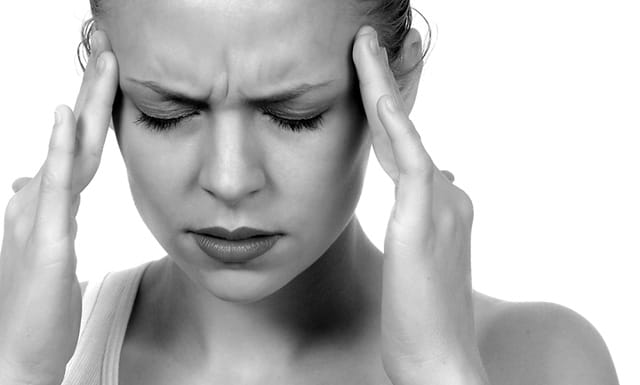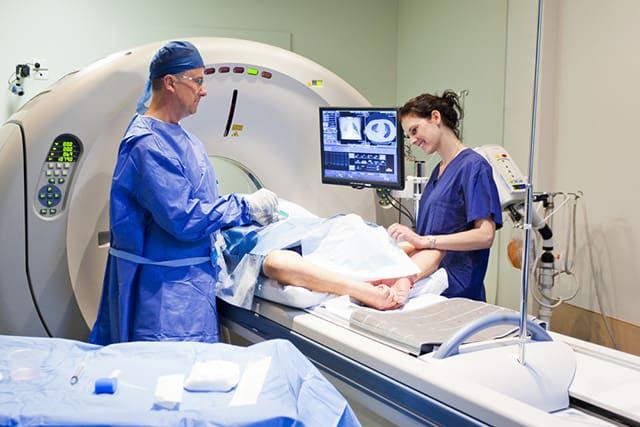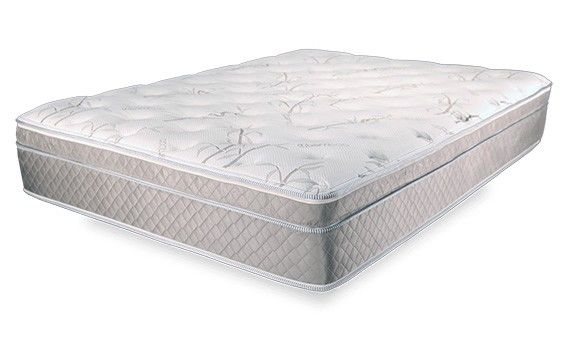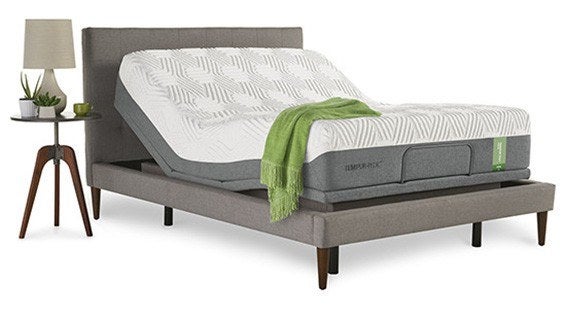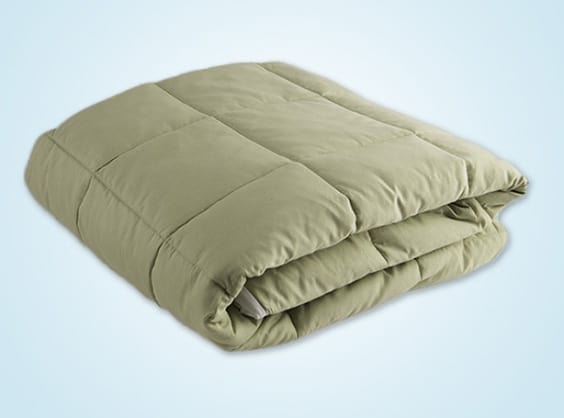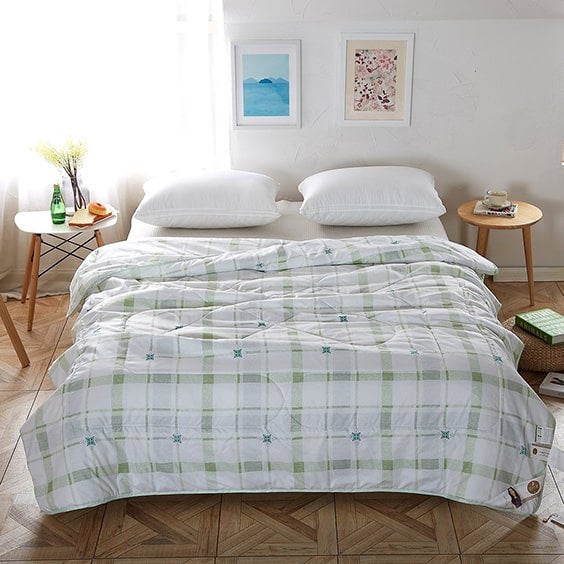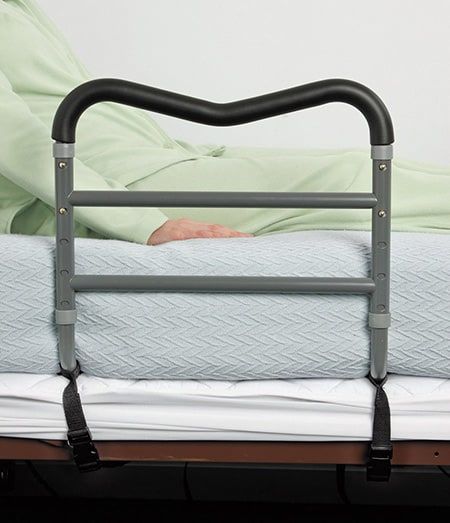Multiple Sclerosis (MS) is characterized by the body’s immune system directing an attack upon the central nervous system. Exactly why this occurs remains unknown, but it is believed to be a genetic alteration triggered by environmental factors. Since the nervous system is interrupted, the disease produces a wide variety of symptoms.
Discomfort from MS can range in mild to severe, and may inhibit your way of life in many ways. There are certain steps you can take to help alleviate your pain, especially concerning your rest. A good night’s sleep is crucial to your body’s healing process- a definite need when you are combating such a disease.
What are the Symptoms of Multiple Sclerosis?
MS is notoriously difficult to diagnose due to the complexity of the disease and the many factors that define it. Plus, symptoms may be practically obsolete, or not even noticeable until another problem eventually arises. Because of this people may live with the disease without their knowledge, compounding the studies to try and determine initiating factors.
Some of the most common symptoms of MS include severe fatigue, walking difficulties, numbness of the extremities, vision issues, inabilities to focus on tasks, and pain. Many of these are early indicators of an ongoing problem and through time will generally become worse if not treated. Emotional responses and depression are also common, especially after diagnosis since this is a lifelong, incurable disease. The good thing is that it is not considered a fatal disease and life expectancies for those diagnoses are the same as those in the general population. However that also means that fighting the disease and the discomfort is causes is also a lifelong task.
How is Multiple Sclerosis Diagnosed?
Because there is no specific test for MS, diagnosis is determined through ruling out other conditions that produce similar symptoms. Blood tests, spinal taps, and MRIs area also common to help determine MS as are multiple occurrences dealing with nervous system responses over time.
Since MS causes a disruption between the nervous system and the brain, nerve damage may occur. Evoked potential (EP) tests may also be used to help determine the electrical activity occurring in the brain. Since impaired vision is common, and often an early symptom, visual nervous stimulation is most often tested for to see if any disruptions occur.
How Does Poor Sleep Affect Multiple Sclerosis?
A lack of sleep, or sleep deprivation, is a leading cause of short term, and long term health issues nationwide. Adults require, on average, 7 to 9 hours of sleep each night. When this is not obtained, it doesn’t take long to build up a sleep debt – a reflection of the hours your body is craving to function properly.
A perfectly healthy person without any additional stressors on their body will experience a general lack of focus, lower cognitive function, and slower response to stimulus. These are also all symptoms that may be experienced if you are suffering from MS, so you very well may compound these effects by not getting enough sleep each night.
When you sleep your body is also actively healing itself. Muscle repair, bone growth, and cellular function are all supported by your body’s rest. When additional stress occurs due to illness, sleep it part of the building block of repair your body needs to continue to function. A lack of sleep can cause an increase or worsening of physical MS symptoms, plus you inhibit the healing process as well.
How Does Multiple Sclerosis Affect Sleep?
A very common symptom of MS is fatigue, likely caused by the body’s response to the disease from which it is under attack from. Because of this your sleep may be very much affected by the disease itself, and many sleep disorders are associated with MS. Since neurological function is affected by the disease, sleep interruptions are mostly related to body processes that are dependent upon the central nervous system such as breathing, bladder control, and appendage movement.
Common sleep issues arise due to nocturnal leg spasms and restless leg syndrome- which have a tendency to occur in patients five times more likely than those without MS. This is likely due to how the nervous system is damaged through the disease. Sleep disordered breathing, heat retention and night sweats, and loss of bladder control are also common nighttime discomforts that may occur.
REM sleep behavior issues and narcolepsy have also been recorded due to how the brain receives and transmits impulses. Medications used for treatment may also have adverse side effects that influence your sleep as well, so you should definitely speak with your healthcare provider if you already have been experiencing, or begin to experience sleep issues after beginning treatment.
With care and consideration, your sleep can be improved. There are many steps you can take personally and medically to help alleviate any problems that arise from this issue.
Tips to Rest Easier
There are many, many steps you can take for a better night’s rest even if you aren’t suffering from any disease related discomforts. You should first apply the many suggestions made here to help create a sleep environment conducive to your rest, and then approach any further problems that may be causing your unrest.
Consider Your Sleep Environment
Bedrooms should be reserved for rest and intimacy. Try to avoid any work spaces or entertainment, such as television, video games, or computers that may disrupt you from the true purpose of your sleeping space: sleep.
Dim your lights, provide darkening room curtains, and turn off any electronics such as tablets and phones that emit blue light at least an hour or more before heading to bed. Daylight is very influential on our bodies responses to sleep, and blue light mimics daylight. As the day wans our body begins to produce melatonin, the natural hormone that is released to influence sleep. When we disrupt this natural process our body responds by waking itself back up, which can make it difficult to fall asleep each night.
Decrease the temperature in your room. As our body prepares itself for sleep, our body naturally begins to cool. This is due to how our body reacts to sleep itself, and cooler temperatures allow your body to focus on your sleep cycles- which support healthy brain function- and how your body reacts to the healing process. Optimal sleep temperatures are between 60 and 67 degrees. MS sufferers have an increased sensitivity to heat due to nerve damage, so this is especially important.
Take Control of Your Schedule
Avoid long afternoon naps and resting too much. We all feel we would benefit from being able to just sleep an afternoon away at times, but not only will this disrupt your natural sleep cycle, but may result in overall less restful sleep. If you need to shut your eyes in the afternoon, do so for no more than 20 minutes at a time so as to keep your brain from entering into the deeper sleep stages that, when interrupted, actually will make you feel less rested.
Create a sleep schedule and support your natural circadian rhythm, an internal alarm clock that supports a regular time table of rest and waking movement. When you support your body’s reactions to certain times of day, the pattern your brain recognizes influences your rest and supports a deeper sleep.
Rotate a regular period of physical activity or exercise into your daily routine. When you exercise your body heats up, and then begins to cool. This period may take up to six hours, but as mentioned above a decreased temperature is supportive of a better night’s sleep, and as your temperature drops, your body responds into a state of relaxation. Be sure to get active at least five to six hours prior to hopping into bed.
Meditation is a relaxation technique to help calm both your mind and body. Many studies have been done that shows an overall improvement in health for people who take the time to clear their mind of stress and breath deeply. This also improves lung function and blood flow, and helps you to relax.
What to Avoid
Medications may always be considered, but do not always act as a long term solution. Whereas you may not want to avoid them completely, make sure you explore both over the counter and prescription medications with the aid of your doctor. These may alleviate any pain you may be experiencing that keeps you awake. Medications can also aide in sleep, but should always be taken in direction of your doctor as sleep aides are often habit forming.

Avoid large meals prior to bed. Like the above mentioned, your body will begin to process whatever you eat. Although most foods break down more quickly than those mentioned above, it does initiate digestion. Plus large meals can also cause indigestion and bloating which may further your discomfort.
Exercise for Overall Health Support
Getting active does much more than help support sleep, it also can help alleviate many of the issues that arise due to the nature of the disease. In turn this supports your overall mental and physical health, which indirectly supports your sleep habits. Consider regularly adding in some of the following to support a better sense of well-being:
Flexibility is an important part of muscular strength and range of motion. Due to the pain that may accompany MS symptoms, patients often don’t move as much as they should which can increase non-MS related discomforts. Stretching can be done in almost any position, including while you are sitting.
Cardiovascular fitness, including weight lifting and aerobic exercises, increases blood flow through an increase in heart and lung function. Not only does it support an overall healthier you, in also supports your healing processes and abilities to deal with stress and pain.
Balance and coordination can be very adversely affected by MS symptoms, and regularly incorporating these types of activities (think yoga or tai-chi) into your regular routine will help improve muscle function, flexibility, balance, and muscle strength. More importantly it will allow you to keep track of symptoms that may be affecting this in order to better combat it.
Best Sleep Products for Multiple Sclerosis
Although there are many different ways MS can cause discomfort through the night, the disability is not specific to any one particular discomfort, and in fact most restless nights are attributed to decreased neurological function. Heat intolerance is also another issue many people with MS suffer from. When nerves damaged by the disease to cease functioning as they should, your ability to sense the environment is diminished. This can result in overheating and discomfort.
Of course, your overall sleep comfort does directly affect how you sleep, and there are many products to consider to help keep you comfortable, and aide in any symptomatic issues you may have.
Mattresses
What kind of mattress you buy may be the single most important sleep product to help you with MS related sleep disorders. This is especially true if you suffer from any form of debilitating MS symptoms. MS causes issues with nerve function and your overall ability to feel and/or move, which can result in bedsores and other skin issues for anyone who is required to spent any amount of time in bed.
Choosing a mattress that provides both a cooling and protective surface should be a main focus when considering product choices. There are many choices available that pertain particularly to this problem as heat retention during the night is often a common problem. When instigating a search, look over the many sites that provide unbiased cooling mattress reviews for further research.
You also want to take into consideration the surface comfort. Softer surfaces, especially those made with memory foam, may be problematic to anyone suffering from the movement restrictions MS can cause. These types of surfaces contour and sink under weight, and can be a problem when trying to get out of bed.
Smart Beds
Ergonomic beds that adjust to your comfort, can be raised, lifted, lowered, or even tilted all exist to help with mobility issues. When movement is compromised to a degree that getting into and out of bed, or moving within the bed becomes a problem, these may be good solutions to help make simple tasks easier.
Mattress Pads
As with mattresses that provide cooling features, separate cooling pads can also be bought for existing mattresses. Infused with cooling gels and breathable, moisture wicking materials, these rest on top of your mattress and under your sheets and generally are an additional layer of firm, or soft comfort as well. They are a decent choice for mattresses that may be too firm, but need a thin cushioning layer. They also can provide a firmer layer to a too soft surface.
Mattress Protectors
Your comfort provided by mattress surfaces and pads are important, but many other overlooked products also provided specific to some of the effects you may have with this disease. As mentioned a loss of bladder control can occasionally become and issue, and instead of accidents becoming a tedious cleaning process, invest in a quality waterproof mattress protector.
These easily slip over your mattress and mattress pads and are both absorbent to keep moisture away from skin contact, and waterproof to protect your bedding beneath. They are also easily washable, although be sure to tumble dry on low or air dry to keep them lasting for a long time.
Lightweight Bedding Materials
When movement is inhibited, so occasionally is strength. Lightweight blankets for warmth without weight are good choices to allow full movement in pulling up and down covers, as well as moving beneath them. This also helps for leg spasticity when it is worse at night. Covers can be easily kicked off, but lighter materials are easier to pull back into place.
Support
A railing or grab bar can also aide in overall movement for getting into and out of bed. It allows for independent mobility as well as stabilization when needed. Many different types of these exist. More permanent support, as well as collapsible, or even moveable, rails, can be purchased to be used when, and where they are needed.
Conclusion
If you, or anyone you know, is suffering from MS, it doesn’t have to be the cause of constant discomfort. Talk with your healthcare provider for your best course of action, and apply the tried and tested sleep tips listed here to help get your body into a natural rhythm to support sleep, and your overall health. Resting your body is a crucial process in healing and combating disease, so taking the time and effort to get the best possible can help aide in your approach to living with MS.
Keeping yourself active not only supports sleep but also builds up your body to cope with the issues that arise due to how MS attacks the nervous system. Staying physically strong can help with mental strength, and also allows your mind to settle along with your body when it comes time to sleep each night.
Bedding choices should also be integrated into your sleep to help with the unique issues that may arise with this disease. Heat retention, in particular, can be very discomforting, so cooling mattresses and pads are a great choice for overall comfort.
You may also want to read: Bedding And Sleep Solutions for People with Disabilities

